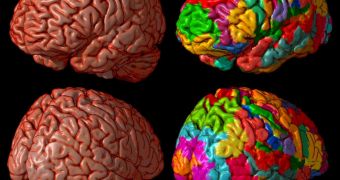For the better part of four decades, healthcare experts have been prescribing the drug haloperidol to people suffering from a wide variety of conditions. Most often, this lead anti-psychotic medicine is used to treat symptoms associated with hyperactivity, delusions, hallucinations and delirium. There are very few alternatives to using this chemical, but a new study shows that the substance has adverse and immediate effects on a region of the brain called the striatum. This area is directly involved in mediating movement, and any loss of mass leads to shaking, drooling and restless leg syndrome.
This is precisely what investigators found when they injected a number of healthy volunteers with the medicine. Just a couple of hours after the anti-psychotic medication was administered, the participants started exhibiting the aforementioned side-effects, demonstrating that their brain temporarily become unable to control motion and coordination. When using functional Magnetic Resonance Imaging (fMRI) to clear this mystery, the science team noticed that haloperidol caused the striatum to shrink and rearrange itself in a very short time span.
“We've seen changes in the brain before, but to see significant remodeling of the striatum within a couple of hours is staggering. Our viewpoint was that only chemical changes would happen in such a short time,” explains Melbourne, Australia-based Howard Florey Institute expert Clare Parish. She was not a part of the team that conducted the new investigation, which was based at the University of Heidelberg in Mannheim, Germany. The group was led by UH professor of psychiatry and psychotherapy Andreas Meyer-Lindenberg, who was also the lead author of a new paper detailing the findings. The work appears in the latest issue of the esteemed scientific journal Nature Neuroscience.
“This is the fastest change in brain volume ever seen. Studies have found that the volume of brain regions changes over a number of days, but this is in one to two hours, and in half that time it bounces back,” the group leader says. He adds that haloperidol is just like other anti-psychotics, in the sense that it readily influences the D2 receptors, which are in charge with binding to the powerful and addictive brain hormone dopamine. Additionally, the study found that one of the mechanisms through which the drug may be acting is by reducing the overall number of synapses between neurons, Nature News reports.

 14 DAY TRIAL //
14 DAY TRIAL //